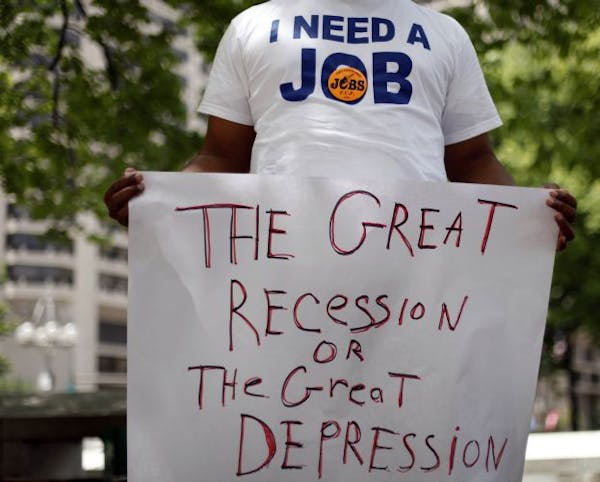At first blush, a California woman's petition against Target stores for making her work on Thanksgiving may have seemed like a staffing issue better settled quietly between an employee and her boss.
But C. Renee touched a nerve with her call to the store to "take the high road and save Thanksgiving for employees like me and our families by saying no to 'Thanksgiving Creep.'"
As of this writing, the petition has surpassed 250,000 signatures on the Change.org website. It's one of more than 70 petitions aimed at discouraging stores from opening as early as 8 p.m. on Thanksgiving Day to lure in Christmas shoppers with special discounts.
Some posts are from consumers, some from workers. One came from Afghanistan and said, "It isn't right to have Wal-Mart employees work all Thanksgiving Day because they could lose their job if they do not go into work."
These writers raise an appropriate question. What does a holiday mean if a certain segment of society is de facto excluded from celebrating it?
As the traditionally largest shopping day of the year has expanded from the Friday after Thanksgiving to midnight on Thanksgiving to now Thanksgiving evening, it's not just employees who pay a price -- though they pay the biggest one, some having to go in hours before opening. In a spiritual sense, all of us pay when we begin to think of what once was a day reserved for family and friends as just another day of commerce.
Wal-Mart opened the door to Thanksgiving Day shopping, and now Target, Sears and Best Buy are following suit. It's billed as optional and framed as a fun, even madcap exercise. But for people on tight budgets, or desperate to land a coveted Christmas gift, it can feel obligatory.
If the best sale of the season requires you to be on a store line Thanksgiving evening and guarantees you will have the hard-to-find gadget for Christmas, the pressure is high.
I know because the year my husband died, I spent one long December night in a Target parking lot amid snow flurries to get my younger child the Nintendo Wii he wanted. I'd struck out on every other attempt to find it, and he'd had a rough year. At least that wasn't a holiday night.
Once, even the idea of shopping on Sundays -- traditionally a day of rest and worship -- seemed offensive. A 1977 New York Times column decried it as "Sunday imperialism" and said it completed "the integration of family and market."
Not quite, it turns out. That's being completed this year.
"The market will pursue its conquest of the city," wrote author Rob Manoff, "and for what we buy on the Lord's day we will pay a high price indeed: the loss of time and space to do other things, to think other thoughts, to be other people."
Now it's hard to imagine not being able to shop on Sundays. Irregular or double work shifts, child-care arrangements and other complications of daily life make that a convenience some of us would be loath to give up. It's the same with evening shopping hours. Some Wal-Marts are open around the clock on nonholidays.
But not everywhere. In some countries, including parts of France and Italy, there are sacrosanct times of day. Weekdays from 1 to 5 p.m. are set aside for rest, and no amount of money would get a village merchant to open a store then.
Here we've lost the ritual of down time. We race through life, eating meals at our desks or in our cars, spending evenings on the computer and cellphone multitasking and shuttling between activities -- our own and the children's.
We don't even take all our vacation days. Of the 12 days America's workers typically get, only 10 are used, an Expedia study finds.
All of that argues for at least three or four days a year to be set aside as safe zones, free from the ubiquitous reach of capitalism. We need to remind ourselves that the things that make life meaningful -- slow-cooked meals enjoyed with family and good friends, the stages in children's lives that will never return, serving food to people in need or in other ways reaching out to share the bounty -- can't be bought and sometimes take precedence over making and spending money. And we need to model that message for our kids.
If enough people stay away from stores Thursday, maybe retailers will get the message. Here's to a happy and meaningful Thanksgiving.
The courage to follow the evidence on transgender care

Republicans wanted a crackdown on Israel's critics. Columbia obliged.


